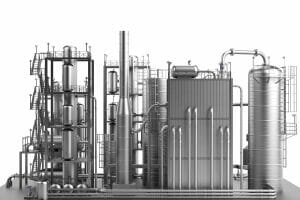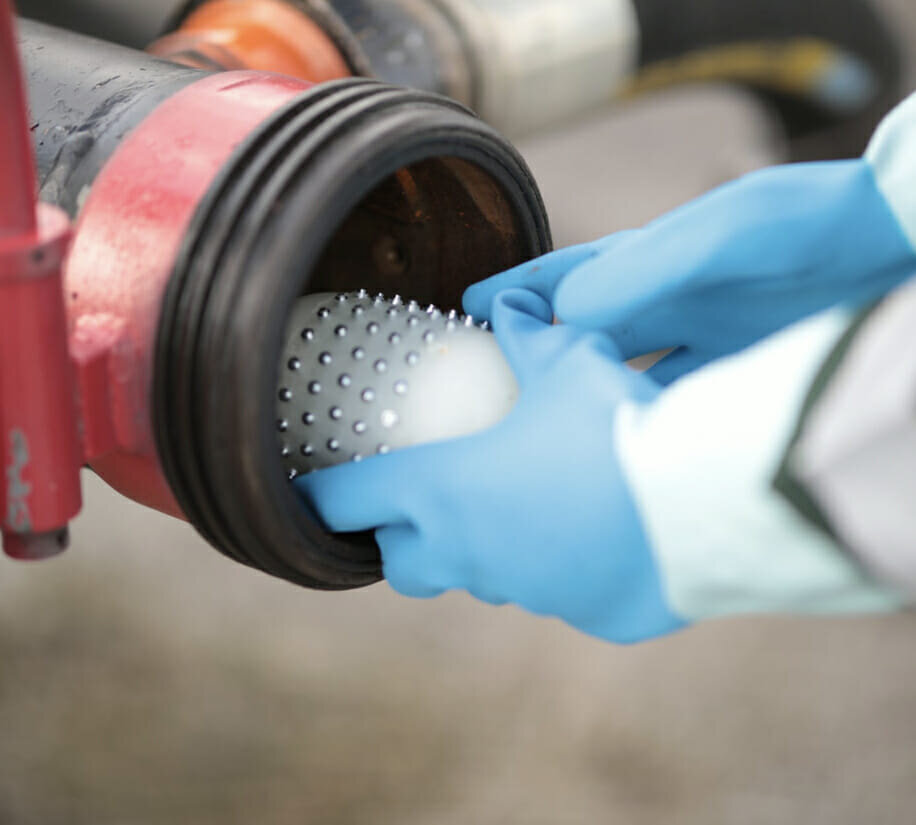Decoking is the process of removing coke/scale build up from the process tubes of fired heaters and boilers. Internal cleaning of heater tubes can be done in several ways; chemical cleaning, steam-air decoking, in-line spalling and mechanical pigging are the most common. The effectiveness of each method varies.Steam-air or thermal decoking is widely recognised as the traditional decoking method. A mixture of steam, air and heat is used to cause shrinkage and cracking of the coke deposits inside the tubes. The steam and air mixture is passed through the coke deposits inside the tube walls whilst they are heated externally. It works best for radiant tubes, but it is not always guaranteed to remove coke thoroughly. When this is the case, it may be necessary to dismantle tubing which is an expensive and destructive method of cleaning. Only trained, experienced personnel should carry out this process, as incorrect procedures could lead to overheating the tubes and cause serious damage to the heater. Another disadvantage is that the chemical reactions of hot coke, steam and air produce CO, CO2 and H2 which are vented to the atmosphere and are bad for the environment.
In-line Spalling offers the advantage of being the only decoking operation that can be carried out whilst the furnace is in service. One furnace at a time can be treated whilst the others remain in operation. The process involves using high velocity steam, which is alternately heated and cooled, delivering thermal shocks to the coils in order to create a contracting and expanding effect, to spall coke off the tube wall. It has less environmental issues than steam-air decoking, however, other decoking methods may still be required as it is not considered to be a full decoke, and it has very little effect in convection areas of the furnace. The other disadvantage of this method is that the coils are susceptible to damage due to contraction and expansion during the spalling process.
Chemical cleaning consists of circulating a chemical cleaner, usually an acid, through the process tubes until the coke build-up has been softened and removed. The tubes are then flushed through with water to remove all deposits from the coil. It is important to pay close attention to the chloride content of the water used for flushing in order to avoid corrosion damage of the tube walls. The use of chemicals for decoking are not environmentally friendly so need to be disposed of carefully which can increase costs.
Mechanical decoking or Pigging has been proven as the most effective method of removing internal fouling, coke and scale from the inner surface of fired heater and boiler process tubes. When mechanical decoking using scraper pigs was introduced in the early 1990’s, many refineries were quick to benefit from the clear advantages of this new process. Abrasive pigs are propelled through process tubes with high pressure water, from mobile pumping units. The pigs can move bi-directionally through the coils to remove coke deposits in a wire brush-like method. Latest developments mean that the pigs can navigate plug headers easily without any modifications to the pipe. Mechanical decoking can potentially reduce damage to the tubes as with other techniques like steam-air and chemical cleaning. Not only useful for the cleaning of tubes, pigs can also be used as an inspection tool.
When comparing decoking methods, it is clear to see why mechanical decoking has become the preferred choice. Mechanical pigging eliminates the problems associated with steam-air decoking and on-line spalling, such as venting of waste gases to the atmosphere and the vulnerability of coils to rupturing due to high-temperature operation. Pigging removes almost all the coke from the coils and it is a faster cleaning process and comparatively longer run lengths are achieved with respect to the other cleaning processes.
NEED MORE INFORMATION?
Find out more at www.cokebusters.com or contact us +44 (0)1244 531765, [email protected]

3d render of oil refinery





